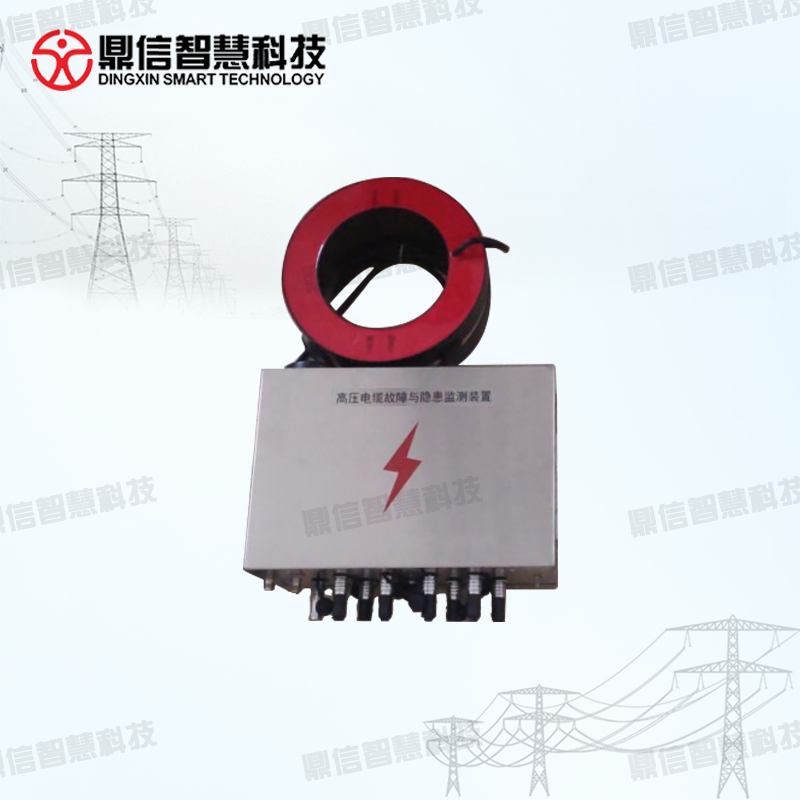Demand Analysis
Due to the complexity of the cable or cable-overhead hybrid lines through the terrain, subject to adverse weather and other natural factors and municipal construction and other human factors, it is very easy to have a variety of faults, resulting in power supply interruption and lead to huge economic losses. At present, when the fault occurs in the overhead transmission line, the general use of segment positioning and traveling wave positioning methods, basically realizing the fault online positioning problems; and cable positioning is mainly concentrated in the fault location after the power outage, it is necessary to carry out a study on the fault online positioning of the cable. Accurate fault location on the one hand can reduce the burden of patrolling; on the other hand, it can speed up the line to restore power supply, reduce the economic losses caused by power outages; in addition, it can also provide a reliable basis for the hybrid line reclosing or manual power test.
Working Principle
The system consists of three parts: high-voltage cable fault and hidden danger monitoring device installed in the cable joints in a distributed manner, the main station of the fault data analysis center and the user system. When a fault occurs in a high-voltage cable transmission line, the monitoring device captures the fault traveling wave, calculates, stores and uploads it, and the master station receives the data from each device and carries out a comprehensive analysis based on the distributed traveling wave algorithm based on the topology, realizes the accurate positioning of the fault section and the fault point, and realizes the fault identification based on the fault waveform. The fault results are pushed to the setup cell phone or view the detailed ranging information through WEB, client, cell phone, etc., which provides rich fault data support for the operation and inspection personnel and shortens the fault finding time. At the same time, the monitoring device can capture the hidden current signal of the transmission line, analyze and calculate the hidden current signal in the background, and make early warning in advance, so as to prevent the problem before it occurs.
Product features
1, fault ranging: fault ranging is the basic purpose of the high-voltage cable and hidden danger monitoring device, to achieve the fault section and fault location, for the analysis of the fault to provide a wealth of recorded data ;?ó
2, the analysis of fault types: after the occurrence of the fault, through the A, B, C three-phase current travelling wave, the analysis of industrial frequency fault current waveforms, to identify the type of fault, to provide a reference for the maintenance of the line.
3, hidden fault early warning: through the monitoring of high-voltage cable lines weak hidden traveling wave, for the existence of hidden cables early warning and overhaul, to prevent the occurrence of tripping faults.
4, equipment self-test: a) with the main components of the device to carry out regular self-test function, abnormalities need to take the initiative to alarm; b) the device may be dead with automatic reset recovery function;
5, terminal status information collection: to achieve terminal solar or CT voltage, battery, temperature, GPS status, GPRS signal strength and other status information collection and statistics ;.
6, advanced principles: distributed installation to shorten the monitoring distance, to solve the signal attenuation problem. Adopting double-end ranging, it can locate the fault point.
7, powerful signal acquisition unit: high-voltage cable monitoring device using a host multi-channel structure. Can simultaneously collect 7-way high-frequency signal (3-way high-frequency current traveling wave, 3-way hidden current traveling wave,
1 road voltage traveling wave), 8 road low-frequency signals (3 road industrial frequency current, 4 road ground loop current, 1 road voltage). Powerful signal acquisition unit for fault recording to provide protection.
8, dynamic wave speed adaptive: the system according to the fault data adaptive adjustment of traveling wave wave speed, positioning accuracy is more accurate.
9, highly synchronized sampling: based on the GPS timing system and precision sampling synchronization algorithm, the sampling synchronization error of the system is greatly reduced, improving the ranging accuracy.
*** Translated with www.DeepL.com/Translator (free version) ***





